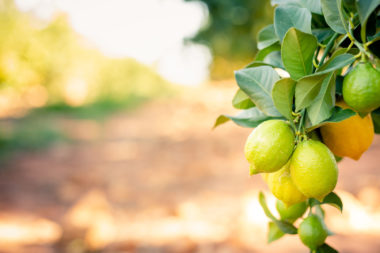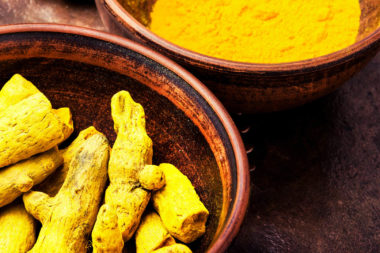

Collagen
Briefly about collagen
- Collagen builds up the skin, skeleton, cartilage, tendons, ligaments, and all fascia, and unfortunately, collagen production decreases with age.
- Collagen supplements can contribute to better joint health and give the skin and hair a fresher glow.
- Collagen supplements are especially important for vegetarians/vegans and older individuals.
What is collagen good for?
Collagen is the most common protein in the body and is responsible for building the body’s structural framework. It forms the basis of the skeleton and all types of connective tissue such as tendons, ligaments, joint capsules, skin, blood vessels, lymphatic vessels, nerve fibers, and more. Collagen is essential for a functioning fascia and thus for a functioning body.
What can a lack of collagen mean?
A deficiency in collagen can affect the skeletal system, all types of fascia, and can lead to weakening of collagen structure throughout the body. This can result in weakened bones, poorer joint health with weaker cartilage, weakened tendons and ligaments, weakened blood vessels, thin and inelastic skin that ages prematurely, and more. Modern dietary habits often involve a much lower intake of collagen than in the past, and unfortunately, the body’s natural production also decreases with age.
Learn more about collagen
Collagen is the most abundant protein in the body, making up over 30% of all proteins in the body. It is a fibrous protein that builds the structure of the body. As it builds up all Fascia, it is found throughout the body, in skin, bone, cartilage, joints, ligaments, tendons, muscle fascia, blood vessels, lymphatic vessels, and more. Collagen deficiency can, therefore, have negative consequences throughout the body, such as deteriorating bones, poor joint health, tendon and ligament problems, weak blood vessels, weak and prematurely aging skin, and so on.
In Fascia, there are special cells called fibroblasts that produce collagen. Fibroblasts are the most common cell type in Fascia. Collagen is produced in many different variations, depending on the function and needs of the specific tissue, as different collagen types have different properties. The different variations, or types, are designated with numbers using Roman numerals. So far, 28 different types of collagen are known, but types I, II, III, and IV are the most studied in Fascia. The most common type of collagen is type I, which forms very strong fibers and is abundant in bones and stronger fascia where a lot of strength is required. In fact, collagen type I has a tensile strength stronger than steel! Collagen type II is found in cartilage tissue and does not form fibers in the same way but only thinner fibrils, while type III is abundant in loose Fascia, mucous membranes, wound healing, and consists of softer, weaker fibers than type I.
For fibroblasts to be able to produce collagen, they need access to the right building blocks. Like all proteins, collagen is made up of different amino acids, the building blocks of the protein. Not all proteins have the same building blocks, and different proteins have different amino acid compositions. Meat (muscle) and dairy products do not contain the entire range of important amino acids needed to build collagen. So it is not enough to eat a lot of protein from refined meat and eat a lot of cheese to get all the necessary amino acids for collagen.
Some amino acids can be produced by the body itself (but even then, the right building blocks must be present). Others are so-called essential, which means that the body cannot produce them itself but they must be obtained through what we eat. With age, the body may also have difficulty producing certain amino acids (as with many other things). Approximately half of the amino acids in collagen are essential, but the most abundant ones can be produced by the body itself. However, despite this, there may be problems because such large amounts are required that the body’s own production is insufficient and needs to be supported with the right food (or supplements).
What is required to build collagen?
To build strong collagen, the availability of vitamin C is also necessary. Strong collagen requires bridges that stabilize the collagen fibers, called cross-links between the molecular chains. Vitamin C is needed for this bridge formation to be possible. This means that a deficiency in vitamin C results in weak, brittle collagen (scurvy, but also something as mild as bleeding gums). Therefore, collagen supplements should be combined with vitamin C intake for the best effect.
Collagen is an animal product and is therefore not found in plants. However, there are some plants that contain important amino acids that can be used to build new amino acids for collagen synthesis. Today, with the Western food culture, we often lack collagen intake. In the past, people consumed much more collagen than today by using all parts of the animals they slaughtered. They ate tough meat with lots of connective tissue remaining, cooked for a long time, ate a lot of offal, and made broth from cartilage and bones. Today, we mostly eat well-trimmed meat without tough membranes and fat, and we rarely or never make our own broth.
To ensure adequate intake of the right amino acids, building blocks for collagen, it is a good idea to consume collagen in some form, either collagen-rich foods or supplements. Taking supplements of hydrolyzed collagen (partially broken down for better absorption) with vitamin C daily provides the right amino acids to maintain and build new, strong collagen. There is a lot of research showing that supplementation with hydrolyzed collagen can provide health benefits for the skeleton, all types of fascia, and more supple skin with increased radiance. Results show improvements in conditions such as osteoarthritis, osteoporosis, and aging skin.
Building collagen requires not only building blocks but also movement is essential! Movement and loading stimulate fibroblasts, the cells, to produce more collagen. During intense exercise, the body increases its production and remodeling of collagen in response to the increased load. Therefore, it is especially important to increase one’s intake of collagen to ensure that all building blocks are available. Research studies show that collagen intake can prevent injuries and improve healing of various types of injuries, as well as improving joint health. During intense exercise and injury healing, a higher intake of collagen is needed, 10-15 g per day, preferably divided into three doses. Adequate movement and balanced loading of the injured tissue are also important for healing to avoid mishealing and scarring. The best effect of collagen occurs if it is consumed one hour before physical exercise so that the building blocks are available when needed.
The amino acid profile of collagen types I, II, and III is relatively similar, so the type of collagen consumed is less important as long as it is hydrolyzed (broken down into smaller parts for easier absorption). Collagen is broken down in the gastrointestinal tract and absorbed as individual amino acids, so the building blocks are available regardless of the type. The body then assembles the collagen needed for a particular tissue, depending on the load that specific tissue is exposed to. If a joint needs to repair its cartilage (osteoarthritis), the cells build collagen type II, which is the most common type in cartilage. The cells receive this information through the joint’s compression – light, which is the normal load for a joint. If a tendon or muscle fascia needs to be repaired, the normal load is more of a stretch/drag type, and collagen type I will be formed.
The important thing is to supply the building blocks and simultaneously ensure that the body is exposed to a balanced load so that a joint is not unevenly loaded, which will cause wear and tear on the cartilage. This leads to the status quo!
Research shows that the harder the tissue is exercised and loaded, the more the collagen requirement increases, and it is then essential to provide extra collagen before and perhaps after hard exercise to improve rebuilding. Similarly, a larger intake is required for healing injuries, such as tendons or joints, along with specific training for the injury (see separate article).
High protein intake can be stressful for the kidneys because it results in high nitrogen intake, but collagen does not have the same negative effect as other proteins. However, if kidney function is impaired, one should always be careful and consult a doctor.


























